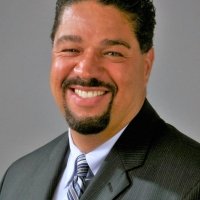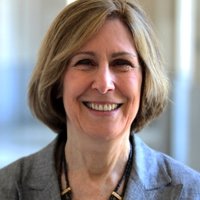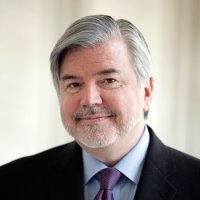Global Trends in the Next Decade: Implications for U.S. National Security, Diplomacy, and Development
The world is more connected than ever before, but also more complex. Big, transnational trends like climate change, urbanization, and migration are changing the calculus of geopolitics, while local-level inequalities persist. “[Change] seems to be spinning around us so fast,” said John Hempelmann, president of the Henry M. Jackson Foundation, which honors the legacy of the late senator from Washington State. How can today’s and tomorrow’s leaders adjust to global trends?
A diverse panel of speakers delved into parts of this challenge at the Wilson Center on June 4, touching on disasters, climate change, human rights, and youth exchange. They provided analyses and recommendations for governments, international organizations, and other actors on the ground.
A New Age of Mega-Disasters
The combination of increased frequency and intensity of extreme weather events and growing number of people living in vulnerable areas has increased the danger of “mega-disasters,” said James A. Schear, a Wilson Center public policy scholar and former deputy assistant secretary of defense for partnership strategy and stability operations.
“I define a mega-disaster in terms of its impact and cost,” he said, pointing to the 2004 Indian Ocean tsunami, which killed an estimated 230,000 people in 14 countries, and Nepal’s recent earthquake, which was no less devastating that people knew it was likely. These disasters overwhelm national capacity. “In 1999, 30,000 people were killed in a very small part of the northern coastline of Venezuela,” Schear said as another example. Torrential rains caused landslides that buried people, but first responders also encountered dangerous chemicals that had leaked from their containers.
Most mega-disasters are not entirely "natural"
As seen in instances like Venezuela and Japan’s Fukushima meltdown, most mega-disasters are not entirely “natural” – there are dangerous follow-on effects from the breakdown of human infrastructure. Humanitarian efforts are often focused more on symptoms than cures to the underlying condition, Schear said. He recommended identifying potential problems ahead of time in disaster-prone areas and emphasized the importance of interagency collaboration. “You have to fix pipes that have broken in a nuclear reactive facility, and that creates legal issues, congressional oversight issues, and practical humanitarian funding issues,” Schear said. “We need to work harder on our upstream U.S. collaboration to strengthen our downstream capacity, especially where there are multi-hazards, including chemical, biological, and radiological.”
Coordination of immediate relief also has a great deal of room for improvement. “Operationally, overall movement is so critical. Flowing aid to the communities; helping communities move to aid if they can’t stay where they are,” said Schear. Efforts can at times be at cross-purposes. “Food air drops often times create a lot of problems on the ground if they’re not well done,” he said. “They can cause violence and riots.”
Schear suggested finding ways to blend civil and military expertise for critical tasks. For example, having local civilian experts tell military air-traffic controllers what flights into a disaster zone should get priority. Likewise, military responders should employ civilian expertise on socio-cultural issues to avoid creating or inflaming tensions. Soldiers distributing aid to vulnerable communities are unlikely to be experts on what they are distributing and can cause extremist groups to turn against communities for associating with them, as was the case in Afghanistan with the Taliban, said Schear. “Neighbors could either be part of the problem or part of the solution,” he said, “it varies a lot depending on the context.”
The Growing Displaced
Climate change is a major contributor to the threat of mega-disasters. More people live in low-lying areas – in the path of flooding, storm surges, and sea-level rise – today than ever before. For some, the only recourse is to move. Such displacement is “one of the most profound human right impacts of climate change, and one for which there is currently no solution,” said Alice Thomas, climate displacement program manager at Refugees International.
“It’s been widely recognized by the Human Rights Council, by governments, by human rights experts, that climate change will directly and indirectly undermine the realization and enjoyment of a wide range of human rights,” said Thomas. Health impacts from changes in food availability, new vectors for diseases, and flooding from sea-level rise are expected to impact millions of people – but some more than others. They are already felt more strongly by minority groups, women and children, and low-lying islands, she said.
Minority groups are often forced to build their homes in the most vulnerable locations or in places beyond the reach of public services. Women are stressed “in their roles as farmers and water collectors,” and children are the most vulnerable to disease and malnutrition, Thomas said. Basic education can help alleviate these vulnerabilities, but again is often more difficult to acquire for minority groups and women and girls.
"Climate change will directly and indirectly undermine a wide range of human rights"
Beyond physical security, displacement threatens the identity of many communities. What will happen to the culture of low-lying Pacific island states that face the threat of complete inundation? “Many of these islands have compounding problems,” such as overpopulation and poor water management, Thomas said. “It’s not just the threat of sea-level rise and storm surge, we’re seeing compounding risks.”
Governments and humanitarian groups need to find ways to respond to these disasters that safeguard human rights, otherwise they risk undermining resilience or simply moving the problem elsewhere. “There needs to be a much more complex approach on how to respond to those challenges,” she said.
“Silver Buckshot”
People are quick to respond to humanitarian emergencies, but it is more difficult to take preventive action. “To do that often requires us to address root causes,” said Ruth Greenspan Bell, a Wilson Center public policy scholar. “Climate change will continue to make every other issue more difficult…there’s really no precedent in human history to what is going on right now.” But efforts to adapt to or reverse climate change have been stuck in the “environmental ghetto.”
"Progress was made when issues were broken out"
The international community has been focused on addressing climate change through one comprehensive multilateral agreement, the UN Framework Convention on Climate Change (UNFCCC). This is a mistake, Bell said, as it allows any disagreement to delay the entire process. “No rational person would put her entire retirement savings into a single stock, but that’s what we’re doing in betting everything on the UNFCCC process.”
Bell said leaders should instead look to lessons learned during nuclear weapons negotiations in the 20th century. “Progress was made when issues were broken out and resolved even when particular agreements didn’t solve everything,” she said. “What followed was a more flexible and opportunistic process.”
A similar approach to climate change would see major emitters reaching deals with one another, regional agreements, and efforts to find shared interests, however narrow, to build on – “silver buckshot,” as opposed to a silver bullet. Bell praised the U.S.-China accord signed last fall as an example of this type of cooperation.
“The point is, we cannot think about this in isolation,” Bell said. “Changes in the Earth system cause social changes.” With California gripped by drought, farmers are being forced to rely on groundwater. What happens when that runs out? What used to be the most agriculturally productive place on the planet would undergo dramatic socioeconomic change as families that farmed for generations are forced to seek new livelihoods, she said.
The national security community has made climate change a key factor in their planning. They know that “climate change is the 800-pound gorilla in the corner of the room,” she said. That same urgency and understanding that climate change “has tentacles in every challenge faced by humankind” needs to be felt more broadly.
Cultural Exchange
How do you get people to think more broadly about these kinds of challenges? Foreign exchange is one way, said Ted Adams, a program strategy specialist with the Peace Corps, and Karin Fischer, senior reporter at The Chronicle of Higher Education.
There has been a “re-emergence of educational diplomacy,” said Fischer. Recent efforts by the Obama administration to bolster study abroad programs, including a visa agreement with China and the prioritization of education programs in opening relations with Cuba, reflects the importance of “education having a role in diplomatic and national security conversations,” said Fischer. Having young people experience other parts of the world helps them understand global challenges, she said.
Undergraduate international student demographics are shifting from the global elite to the rising middle classes of emerging and developing economies. For example, Chinese students account for one in three foreign students in the United States, said Fischer. On the flip side, study abroad remains out of reach for many Americans. Less than 10 percent of U.S. undergraduates go overseas. The majority of overseas scholarships from American schools are funded privately, Fischer pointed out, and it’s a “struggle to get minority students to go abroad.”
Moreover, there’s evidence that when foreign students come to the United States – the largest global destination for study abroad – they aren’t always having the best experience. One study suggests that Chinese students are having trouble integrating during their time in the United States and, far from espousing American values, develop anti-American sentiments, Fischer said. “Are we developing global haves and have-nots in American universities?” she asked. It’s a concern that echoes a larger concern with growing inequality alongside globalization.
Diversity is less of an issue amongst Peace Corps volunteers, said Adams, as minorities make up more than 22 percent of all volunteers in a given year. “We’re really working hard to remove hurdles to that volunteer experience” by providing need-based support, said Adams.
"We need less simplifiers and more complex-ifiers"
The international service organization, which sends volunteers to live in foreign communities for 27 months at a time, largely on their own, works to “share America with the world” through public service and “bring the world back home,” he said.
Volunteers help communities with priorities set by local communities and host governments, touching on issues as diverse as education, sustainable food security, and waste management, said Adam. Having volunteers operate within the local linguistic and cultural context “is part of the secret sauce of Peace Corps,” he said. There is something to be said for “nimble” programs that can quickly adapt and build trust, said Adams, “helping them understand how one problem is connected to another problem in the community.”
Collaboration, But Not Reduction
Hempelmann, who worked on the congressional staff of Henry M. Jackson as well as his presidential campaigns, said the senator made it a point to reach out beyond the advice he received from the government, to get “deeper more thorough perspectives on issues fundamental to the future of not just our country but the world.” Understanding the implications of these global trends and how they relate to each other requires such outreach and cross-sectoral collaboration.
The concept of resilience is “useful as a framework to help us break down the silos,” suggested Roger-Mark De Souza, director of population, environmental security, and resilience at the Wilson Center. But from the intricacies of disaster response to climate change negotiations and the rights of the displaced, it’s important not to oversimplify in the pursuit of cooperation. A complex world requires complex, nuanced responses. As a colleague once said to De Souza, “We need less simplifiers and more complex-ifiers.”
Event Resources:
Written by Theo Wilson, edited by Schuyler Null.
Photo Credit: A village on the coast of Sumatra after the 2004 Indian Ocean tsunami, courtesy of Philip A. McDaniel/U.S. Navy.
Speakers

Vice President, Sustainable Markets, Pact

Visiting Scholar, Environmental Law Institute; Research Associate, Columbia University Business School’s Center for Decision Sciences

Former Deputy Assistant Secretary of Defense, US Department of Defense
Hosted By

Environmental Change and Security Program
The Environmental Change and Security Program (ECSP) explores the connections between environmental change, health, and population dynamics and their links to conflict, human insecurity, and foreign policy. Read more
